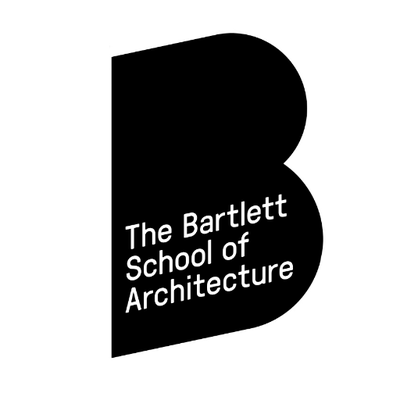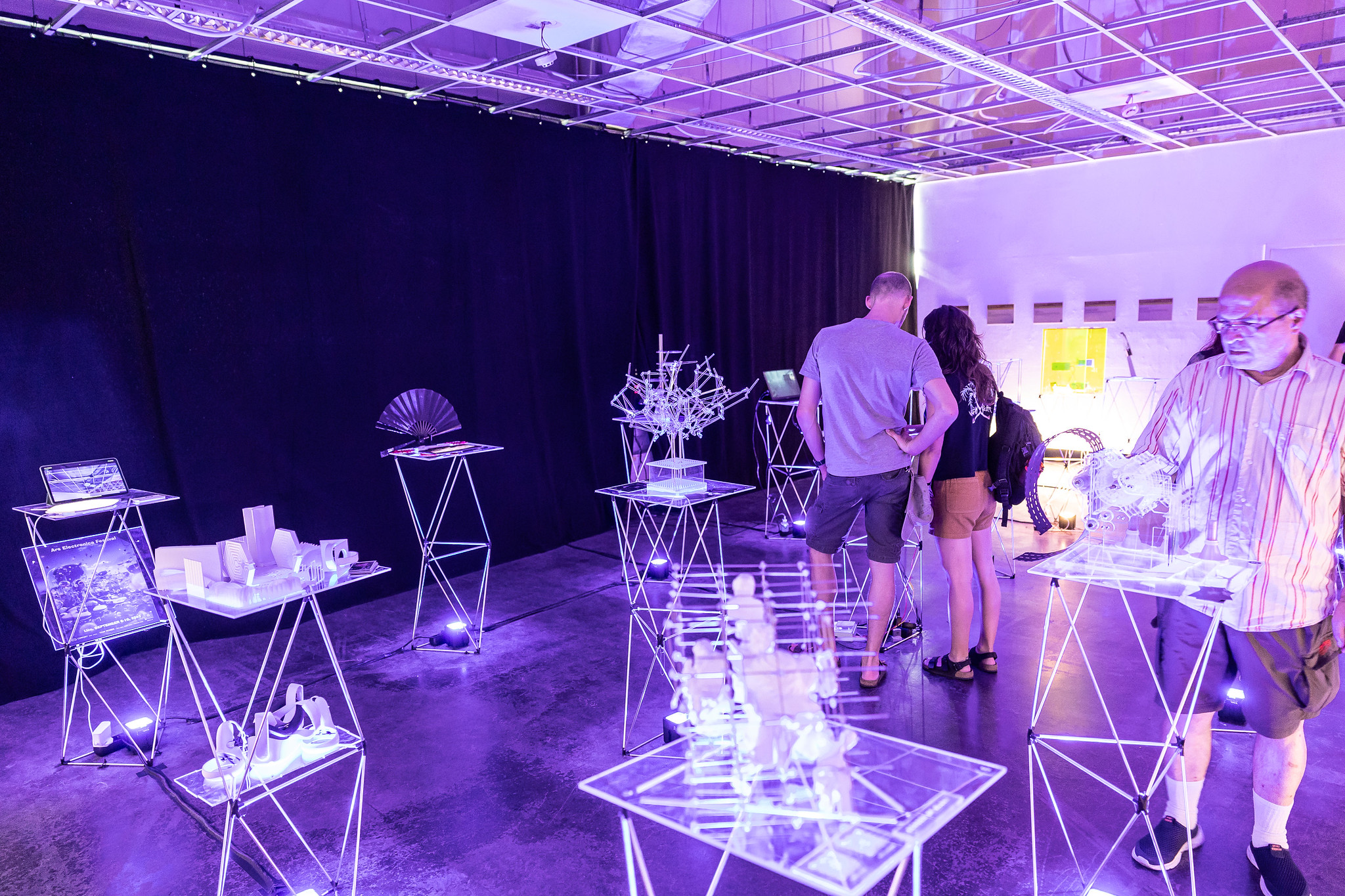In the article “How technology disrupted the truth” in The Guardian (https://www.theguardian.com/media/2016/jul/12/how-technology-disrupted-the-truth), Katherine Viner highlights a shift from focusing on the content of information to technologies that best enable information flow in the post-truth era. Here, acts of clicking and sharing manipulate our perception of reality and guide the formation of what we – collectively and individually – construct as true.
The Bartlett School of Architecture’s March Design for Performance and Interaction is showcasing a collage of design research centered around and interweaving ways in which we conceptualize issues such as privacy, globalization, power (structures), identity, or fact and fiction. The work explores, disrupts and transforms connections between subjective experience and collective realities, producing a meeting ground for cultural, social and political discourse, interrogating how, in enabling such exchanges, and central to this year’s Ars Electronica theme Who Owns the Truth, there exists potential for transforming narratives and definitions of the “truth” and for “thinking of truth as plural”.
-

(un)do
Vanessa Tang (TW), Natalie Pirarak (TH)
(un)do is an immersive installation that seeks to harmonize the technologically amplified disruption of mind and body through movement.
-

An Egg within an Egg
Lihong Gao (CN)
An Egg within an Egg explores questions of identity, existence and digital life forms through VR, a screen-based game and a physical installation that together create a multimedia landscape.
-

Cat’s Cradle
Yilun Liu (CN), Hong Xu (CN)
Cat’s Cradle is a movement piece where two performers’ motions are interlinked by and together drive a physical installation.
-

Cellular Architecture
Alberto Fernandez Gonzalez (CL)
The PhD project Cellular Architecture delves into the intricate relationship between users and spatial design. This exploration is developed through the establishment of user-defined rules, intended to transfigure self-evolving structures within a discrete environment.
-

Deconstructing Drama
Bhagyashree Amle (IN)
Deconstructing Drama explores parallelisms between Dramaturgy, Phenomenology, and Architecture by using elements of deconstruction to create an extended Reality experience centered around Jane Austen’s novel Persuasion.
-

Echoes of Glory
Xinyue Li (US), Mie Eusebi (IT)
Echoes of Glory uses projection technologies and a bespoke physical control system to examine power structures through an investigation of the role of statues.
-

Heavenly
Keyi Liu (CN)
Heavenly is an interactive experience that combines narrative film and VR, using trans-media storytelling to explore “digital mortality”.
-

Identiscentory
Jr-Yun Lin / Karen (TW), Jaewon You (KR)
Identiscentory delves into the realm of sensory experiences, offering participants the opportunity to retrieve, reinforce and share personal narratives through an enchanting analogue mechanical installation.
-

infra-reality
Yufei Lin (CN), Ivy Xia (CN)
infra-reality considers current transformations of artificial intelligence (AI) and how the relationship between AI and humans is evolving.
-

L U D D I T E S
Naitian Zhang (CN), Mengyun Liu (CN), Annisa P. Cinderakasih (ID)
L U D D I T E S reflects on desires and tensions in wanting to preserve human agency and freedoms within larger political systems.
-

Lucky Fish
Ziyu Wei (CN), Kexiu Zhuo (CN), Tianhang Zhou (CN)
Lucky Fish is an immersive, interactive installation that examines superstition and modification of behavior on social media platforms.
-

Modular Theatre
Ziqin Xu (CN), Hongcai Lei (CN)
Modular Theatre is a scalable system that serves as a narrative tool to enable a range of theatrical performances.
-

O.Duir
Zihan Peng (CN), Jie Luo (CN)
O.Duir is a speculative project, centered on a future immersive “seed bank” that preserves tree seeds and makes come alive sensory data relating to extinct tree species , such as olfactory or visual information.
-

Plebeian Throne
Jie Yu Wang (CA)
The Plebeian Throne is a form of passive protest against the mass system of capitalism. The throne is a transformative space for reflection, an intentionally organized enthymeme, creating a performance that is performative restraint.
-

Popcorn
Lihong Gao (CN)
Popcorn is an educational, interactive video examining the phenomenon of online cults.
-

Reverie Resonance
Jingyu Zeng (CN), Jiawen Cao (CN), Zhaohua Chen (CN)
Reverie Resonance is an immersive experience that takes participants on a journey into uneasy nostalgia and dreamlike fantasies.
-

Social XR
Dezijian Zhou (CN), Yi Guo (CN), Yuanyuan Deng (CN)
Social XR is a response to feelings of separation in Long Distance Relationships. The project aims to facilitate interaction by leveraging technologies such as bio-sensing and eXtended Reality to create a sense of closeness.
-

Sonic Eyes
Shabnam Asadikavan (IR)
Sonic Eyes is an exploration into human connection, transforming the silent language of eye contact into a dynamic symphony of electronic-microtonal music.
-

Technically Touchable
Bing Lu (CN), Julia Zhu (CA), Pranayita Myadam (IN)
In a tech-infused world, can machines replace therapists? Technically Touchable delves into the potential technology may have for (psycho)therapy settings.
-

The Tracing Line
Yuxuan Ren (CN)
The Tracing Line explores the Chinese befriending ritual Jie laotong, used by women in the 19th century in Hunan Province in China, to create an immersive experience facilitating moments of bonding between strangers
-

Wind’s Tale
Sofia Beatrice Malatesta (IT)
Wind’s Tale uses wind and sound as carriers of meaningful messages, exploring notions of interconnectivity within the natural world and how natural phenomena transcend geographical boundaries, forging connections between distant places and cultures.
-

Window’s Story
Xiruo Wang (CN)
Window’s Story is a VR experience that allows participants to create windows into surrealist worlds in order to examine philosophies of relativism.
-

Zero-Sum
Runjia Mao (CN)
Zero-sum is an immersive, interactive film interrogating the challenges of being in an emotional relationship with a narcissist.
About the Institution
What happens when we design not in three dimensions but four? The MArch Design for Performance and Interaction is a radical, transdisciplinary master’s degree which teaches students to understand and design performances and interactive experiences.
Credits
March Design for Performance and Interaction, The Bartlett School of Architecture, University College London
Programme Director: Dr Fiona Zisch
Design: Dr Ava Aghakouchak, Dr Paul Bavister, Parker Heyl, Jessica In, Emma-Kate Matthews, Johnathan Tyrrell, Alex Whitley, Dr Fiona Zisch
Technology: Dr Vasilija Abramovic, George Adamopoulos, Dr Sandra Ciampone, Alberto Fernandez Gonzalez, Parker Heyl, Michael Wagner, James Wilkie, Dominik Zisch
Theory: Dr Ava Aghakouchak, Prof. Stephen Gage, Nikoletta Karastathi, Johnathan Tyrrell, Dr Fiona Zisch



